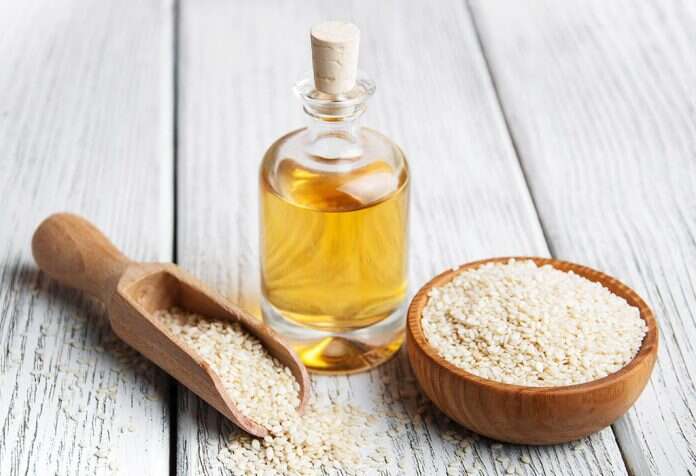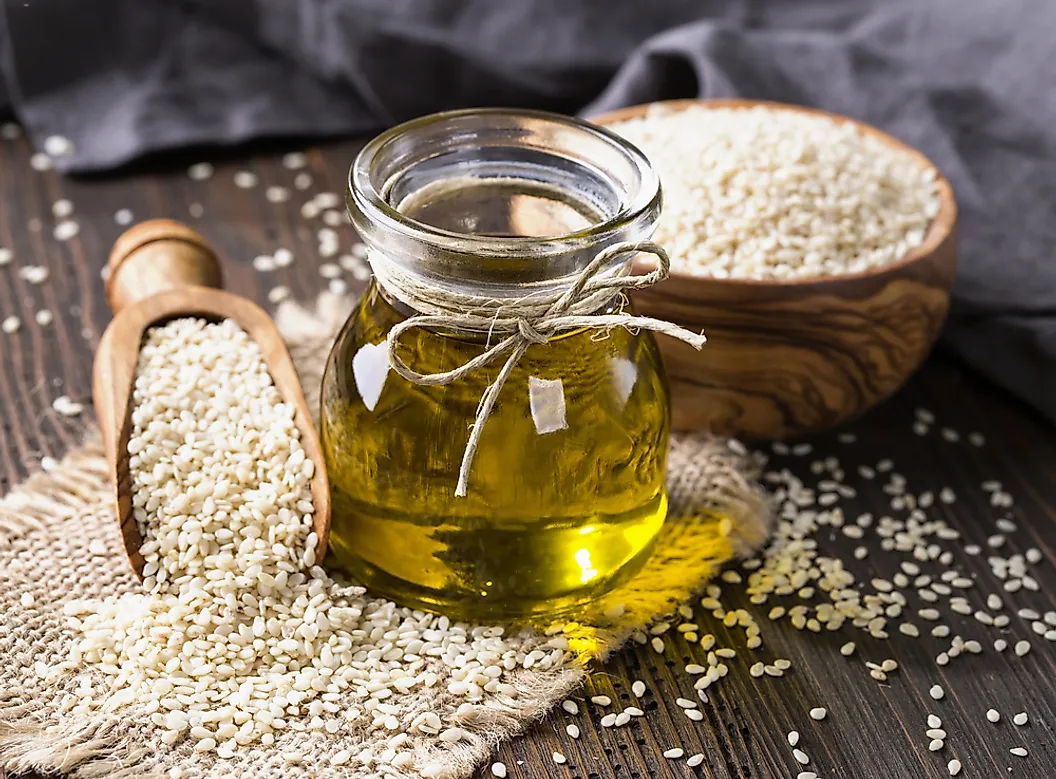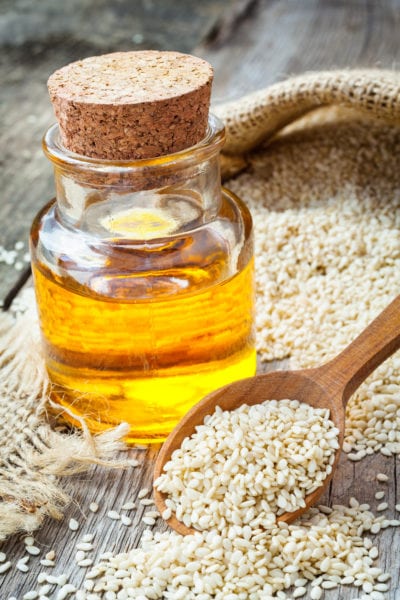What is Sesame Oil?
Sesame oil comes from the seed of the sesame plant (Sesamum indicum). The seed takes about 4-5 months to reach maturity at which time about 50% of the capsules should have turned yellow. The pods burst open with a pop when the seeds are mature.
In Northern Nigeria (where most of the nation’s sesame seeds are produced), the seed is harvested twice annually (August and October). One of the factors responsible for sesame seed’s popularity is the numerous uses it serves. For instance, it is a very good source of vegetable oil that contains no cholesterol, thus making it the most demanded vegetable oil in the world. Sesame oil are also very important to Nigeria’s agricultural export sector, with the country being one of the highest sesame oil producing countries in the world.
The sesame plant has a very drought-resistant nature, in fact, excessive rain can adversely affect the yield. This explains why it thrives excellently in the Northern part of the country and averagely in some parts of Southern Nigeria.
Health Benefits of Sesame Oil
Sesame oil and seeds are used in the confectionary industry as oil and flavour enhancers. They are also very popular due to the health benefits derived from them. We’ve listed some of these benefits below:
- Has Healing Properties
- Can Aid in the Treatment Of Sunburns
- May Support Your Immune System
- Helps in the Treatment Of Anxiety
- May Soothe Rheumatoid Arthritic Pain
- May Support Thyroid Health
- Acts As a Skin Detoxifier
- Good Source of Fibre
- May Lower Cholesterol
- Nutritious Source of Plant Protein
- May Help Reduce Blood Pressure
- Can Nullify The Effects Of Alcohol
- May Support Healthy Bones
- Has Anti-Inflammatory Effects
- May Reduce Inflammation
- It is a Good Source of B Vitamins
- May Aid Blood Cell Formation
- May Aid Blood Sugar Control
- Rich in Antioxidants
- May Aid Hormone Balance During Menopause
- Easy to Add to Your Diet
- Helps in the Treatment Of Cracked Heels
Top Exporting & Importing Countries of Sesame Oil & Seeds
- Nigeria is one of the leading exporters of sesame oil and seeds in the world and the sesame seed is grown in about 26 States of the 36 available in Nigeria.
- Sudan is the leading exporter of sesame seeds in the world.
Data shows that Nigeria ranks as one of the highest producers and exporters globally, despite challenges with production, storage, electricity and others. The following are the top exporters of sesame seeds (and the corresponding export value)
- Sudan ($367 M)
- India ($326 M)
- Nigeria ($163 M)
- Burma – ($96.9 M)
- Tanzania – 18.43% ($82.8 M)
Some of the leading importers of Sesame seeds are China ($413M), Japan ($152M), Turkey ($134M), South Korea ($111M) and Iran ($62.9M).
Sudan produces the 25% of the sesame seeds’ global export, since this good embodies the 45% of the entire Country’s exportation.
Sesame oil and seeds produced in Nigeria has a very good quality and is abundant in quantity, especially during the peak period (June – November). This availability of the raw produce helps international buyers get it at a competitive price.
There is a very large demand for agricultural produce in Nigeria, with many international buyers always looking for products that are cheap and are of the best quality.

Major Types Of Sesame Seeds Exported From Nigeria
There are two major variants of the Nigerian Sesame seeds (from which Sesame Oil is extracted): White Sesame Seeds (grown in the Middle Belt of the country, especially Benue State) and Golden Sesame Seeds (found in the Northern part of the country (Jigawa and Kano States are a major producer of this type).
- Unhulled Sesame Seeds: Sesame seeds have an exterior covering or coat, which is called the husk or hull. The unhulled sesame seeds are still in their natural state, and their husks or hulls remain intact. Unhulled seeds have a slightly more bitter flavour when compared with hulled seeds but they also have a nuttier and crunchier texture.
- Hulled Sesame Seeds: The hulled sesame seeds are seeds with the hulls removed. The hulled seeds have a milder flavour that is nuttier and slightly less bitter than the unhulled one.
How To Safely Source for Your Sesame Oil
If you find the right export company, buying directly from them can make the purchase process easy and stress-free, when compared with doing the sourcing on your own. That said, there are few things to note when dealing with an export company in Nigeria or Africa. The specific requirements for Nigeria are listed below, but they mostly apply to other African countries:
- The exporting company must be registered with the Corporate Affairs Commission (CAC) to make sure the company is registered and permitted to carry out business operations.
- The export company must also be registered with the Nigerian Export Promotion Council (NEPC).
- The company must possess a domiciliary account to accept international payments.
- The company should get all necessary export-related documentation done before the shipment leaves the port of origin. Some of the documents are:
- Certificate of origin
- Bill of lading
- Inspection Certificate (SGS, Cotecna, Bureau Veritas, Intertek, etc)
- Phytosanitary certificate
- Fumigation certificate
Where To Find Reliable Exporters of Sesame Oil
An important question that still needs to be answered is how to find sesame oil exporters in Nigeria. You can use any of the methods listed below:
- Attend trade fairs
- Use search engines like Google, Yahoo, etc.
- Search for agents on Linkedln
- Sign up on trade platforms (e.g. Alibaba, Tradeford, Go4WorldBusiness)
- Neogric – Neogric is one of the reliable sesame oil exporters in Nigeria. Neogric is rated among the best in the exporting business in Nigeria. The company is not limited to the exportation of sesame oil alone but can export other agricultural produce ranging from perishables to dry seeds.

International Price of Sesame Oil Per Metric Ton
The unit price ($ per kg) of Sesame oil in the international market depends on a host of different factors including:
- The grade of the produce (usually the more the processing, the higher the price)
- The price of the raw material
- Age of the sesame oil (this can affect the price)
- The quantity ordered (the greater the quantity, the cheaper you can get it per ton)
- Harvest season (it is more costly when it is out of harvest season).
- Freight & haulage cost
- Percentage of markup
- Import duties
- Distance from the country of origin
- Technology/Infrastructure available in country of origin
- Relationship between the buyer and seller
That said, as at July 2022, sesame oil costs between $3,000 and $4,000 per metric ton (1,000 kilograms) in the international market (i.e. $3/kg to $4/kg).
How To Pay For Your Sesame Oil Produce
You can pay for your Sesame Oil using different methods, but three of the popular ways of paying for your agric produce are:
- Bank (T/T) Payment
- Advance Payment
- Letter of Credit (LC)
Bank Payment (T/T)
Bank payment is also known as T/T, “Telegraphic Transfer” or “Telex Transfer” In other words, it is an international wire of funds from the buyer’s bank to the seller’s bank.
A T/T is technically not the same as a wire transfer, which is often done through the SWIFT network. However, when a seller or supplier asks for a T/T payment, a wire transfer is what they are really asking for.
The wire transfer based on the SWIFT system is the most common payment method in international trade. Typically, it takes 3-5 working days to clear, and generally costs between 25 and 50 USD, depending on your agreement with the commercial department in your bank.
Advance Payment
There are sellers that will demand anywhere from 30% to 50% advance payment, and for good reason. If both parties have done deals in the past, sellers can ask for a percentage of the sales (about 30%) before they ship the produce and they can request for the remaining amount after a scanned copy of the Bill of Lading has been sent to the buyer.
It is the safest option for exporters and it also guarantees that they will have some funds to help with sourcing. It is popular among manufacturers on B2B marketplaces like Alibaba and also with commodity traders.
However, advance payment carries considerable risk for the importer (buyer) because the exporter (seller) might not be under as much pressure to ensure quality checks compared with a stricter form of payment. Some might even disappear entirely.
Having said that, advance payment is very useful and is widely used. For instance, the seller might need to secure the commodity in the face of increased competition. It can also be used when the exporter needs some money for sourcing the produce or for processing raw materials.
The most important thing is for both importer and exporter to build mutual trust by having a track record of successful deals with each other or other known companies.
Letter of Credit
Letter of Credit is an agreement generated by the bank of the buyer, guaranteeing payment once certain conditions are met. It is one of the safest types of payment available to both buyer and seller.
Some of the types of Letter of credit are:
- Commercial Letter of Credit,
- Sight Letter of Credit
- Transferrable or Non-Transferable Letter of Credit
- Standby Letter of Credit (SBLC)
- Usance or Deferred Payment Letter of Credit
- Revocable or Irrevocable Letter of Credit
- Confirmed or Unconfirmed Letter of Credit
- Revolving Letter of Credit
- Green Clause Letter of Credit
- Red Clause Letter of Credit
L/Cs are not totally safe (for either buyer or seller) too. For instance, sellers can ship substandard products or those that are different from the ones agreed upon. In this case, the seller gets paid and the buyer receives goods he cannot use.
And speaking of the dangers of L/Cs for the exporter, the conditions in the Letter of credit might be practically impossible to fulfill; if an exporter agrees to such, he might be unable to receive payment. A report stated that of the letters of credit received in the UK, 50% are unworkable while 70% are rejected by the banks for payment.
Shipping & Delivery Terms
When shipping your products, it is important to take note of a few factors:
Order Quantity
For smaller shipments, airfreight is often the preferred option but as the order volume increases, sea freight could become significantly cheaper. Usually when the order is close to a full container load (20 ft), sea freight is used. Despite all these, the Covid-19 pandemic has caused an increase in cost of delivery of products.
Cost of Delivery
When the order is of a large volume, sea freight often turns out cheaper than air freight. In fact, airfreight could be up to 6 times more costly than sea freight if the volume is large enough.
Time of Delivery
Sometimes, time will be more important to the buyer than the cost of delivering the produce. In this case, air freight will be the logical option (as stated above, the cost will be more). But if you have more time as a buyer, you should strongly consider using sea freight.
Incoterms
Incoterms refer to generally accepted shipping and payments terms. For example, buyers that have representatives in the source country or that can negotiate with the freight company can use the Free of Board (FOB) terms, since it gives them more control and can save them some money.
However, if the shipment is small or the buyer doesn’t have an extensive network to effectively handle payment for freight, insurance and port charges, he will be better off choosing the Cost-Insurance-Freight (CIF) payment option. You can find out more about Incoterms here.
Import Sesame Oil The Right Way with Neogric
Neogric is a trusted global order fulfilment and sourcing solution company with deep expertise in the Sesame Oil industry. Our end-to-end supply chain solution makes the export of quality Sesame Oil nut easy, quick and safe. Whichever region of the world you are, be it Europe, Asia, USA, Canada, Africa, South America or Oceania, you can reliably order your agric products and we will ensure it is successfully delivered to you.
Our Sesame Oil Trade Specifications are listed below:
Origin: Nigeria
Product Name: Sesame Oil
Physical Specification: Based On Buyer’s Specification
Quantity: Based On Buyer’s Specification
MOQ: 20 Metric Tonnes
Trade Process: Ex Works/FOB/CIF
Purity: 99% Min
Inspection: SGS/Cotecna/Intertek/Bureau Veritas
Packaging: Based On Buyer’s Specification
Payment Method: TT (Bank Transfer) or L/C
Shipping Time: 15 to 25 Days After Confirmation of TT or L/C
Loading Port: Lagos, Nigeria or Tema, Ghana
Expected Shipping Documents
– Bill of Lading
– Certificate of Origin
– SGS Inspection Certificate
– Phytosanitary Certificate
– Fumigation Certificate
– Commercial Invoice
– Packing List
Tel: +2348147860157
Email: neo@neogric.com
WhatsApp:
Place Your Order
Click the button below and tell us about your Sesame Oil needs. We will be glad to help you export Sesame Oil based on mutually agreed terms.


